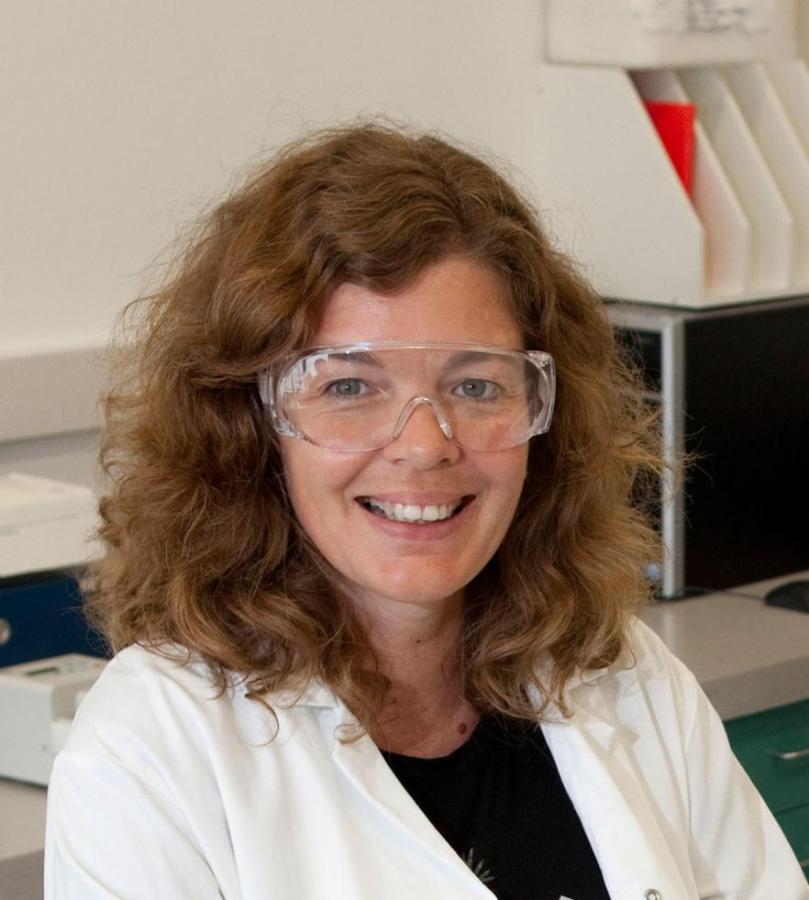Qualifications & Memberships
Bachelor of Arts (Honours) (University of Oxford)
Doctor of Philosophy (University of Oxford)
Master of Arts (University of Oxford)
New Zealand Institute of Chemistry (NZIC) (Professional Organisation): Member
New Zealand Institute of Food Science and Technology (NZIFST) (Community Organisation/NGO): Member
New Zealand Society for Biochemistry and Molecular Biology (NZSBMB) (Professional Organisation): Member
Protein Society (Community Organisation/NGO): Member
Research Interests
Our research is interdisciplinary and highly collaborative, cutting across biochemistry, chemistry, health, agricultural and food science and biomaterial design. It also incorporates a full spectrum of applied and fundamental research. At present, a major focus is the understanding of the quaternary structure of proteins and the implications that this has for evolution of oligomeric proteins and higher order protein assembly. This research has potential application in the design of novel therapeutic agents (by disrupting quaternary structure) and in the assembly of novel materials, e.g. from higher order quaternary complexes or amyloid fibrils.
- Structure, function and application of proteins
- Harnessing protein science for NZ industry
- Protein aggregation and assembly, especially in the context of food and nanoma
- Maillard reaction of proteins
- Amyloid fibrils
In June 2004, Dr Juliet Gerrard (Biological Sciences) was presented with a Sustained Excellence Prize at the Tertiary Teaching Excellence Awards at a dinner in Parliament’s Grand Hall, hosted by the Prime Minister Helen Clark.
Dr Gerrard describes herself as a "learning coach" who likes to challenge and excite her students to the point where they leave their comfort zones.
"I think it's really important that rather than fill students up with information that's in your head, you teach them to gain the information themselves. If you teach them things that are easy for them, they could have done it without you. But if you teach them stuff that's over their head they’re never going to get it. The important bit is to find the bit for each student where they’re going to learn the most. I try and engender a sense that each student is part of a scholarly community that asks valid questions and challenges existing paradigms."
The annual Tertiary Teaching Excellence Awards were established by the Government in 2001 to recognise outstanding tertiary teachers from all publicly funded institutions and private training organisations. Organisers say teachers are judged on their commitment, knowledge, enthusiasm and ability to stimulate students.
Dr Gerrard says she considers teaching to be the core function of a university. "The PBRF (Performance-Based Research Fund) has meant everybody's very focused on their research and more particularly their research grade. To actually be recognised for teaching is great."
The Sustained Excellence Prize gives Dr Gerrard $20,000 to fund activities or initiatives to enhance her teaching career and promote best practice. "One of the things I'd quite like to do is learn how to teach students from other cultures. Maybe visit an Asian university and try and find out how to adapt my teaching methods to better suit those different cultures, because my teaching methods are based very much on an English style. The more international students there are in the room the more I’m struggling to keep everyone on board at the same time. So I get the impression that I need extra techniques to pick out enthusiasms and interactions from different cultures."
Dr Gerrard has been described as one of the most effective teachers in the School of Biological Sciences. Last year she received a Canterbury University Teaching Award. One of her students said: "Juliet is incredibly dedicated to her students. She is truly a talented educator and academic."
Recent Publications
- Doak DG., Denyer GS., Gerrard JA., Mackay JP. and Allison JR. (2020) Peppy: A virtual reality environment for exploring the principles of polypeptide structure. Protein Science 29(1): 157-168. http://dx.doi.org/10.1002/pro.3752.
- Domigan LJ. and Gerrard JA. (2020) Introduction to Protein Nanotechnology. Methods in Molecular Biology: 1-13. http://dx.doi.org/10.1007/978-1-4939-9869-2_1.
- Gerrard JA. and Domigan LJ. (2020) Preface. vii.
- Rani A., Kavianinia I., Hume P., De Leon-Rodriguez LM., Kihara S., Williams DE., McGillivray DJ., Plank NOV., Gerrard J. and Hodgkiss JM. (2020) Directed self-assembly of peptide-diketopyrrolopyrrole conjugates - a platform for bio-organic thin film preparation.. Soft Matter 16(28): 6563-6571. http://dx.doi.org/10.1039/d0sm01071e.
- Suzuki H., Mahapatra D., Board AJ., Steel PJ., Dyer JM., Gerrard JA., Dobson RCJ. and Valéry C. (2020) Sub-Ångstrom structure of collagen model peptide (GPO)10 shows a hydrated triple helix with pitch variation and two proline ring conformations. Food Chemistry 319 http://dx.doi.org/10.1016/j.foodchem.2020.126598.


